Anatomy of an Era: Larry Townsend, Part 1
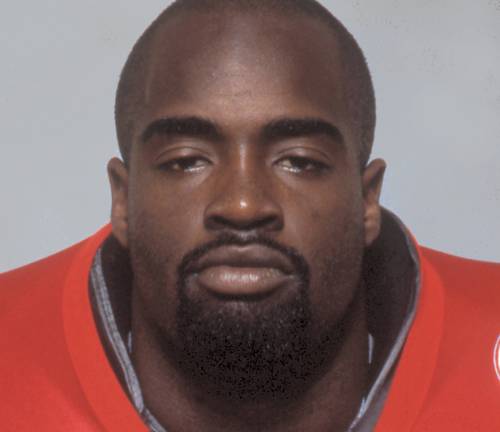
Excerpted from Chapter 69, No Place Like Nebraska: Anatomy of an Era, Vol. 2 by Paul Koch
“Football is violence and cold weather and sex and college rye.”
-Roger Kahn
By now I would like to think we have a well-informed grasp of how the Cornhuskers did it, although our upcoming man of mystery, Charlie McBride, is just around the corner. In order to tee him up in fine fashion I wanted to first speak with a few defensive linemen who could shed some light on the man, as well as maybe give me some jumping off points for an interesting chat. And who else better to provide the ammo than ‘ol Triple Fat Goose himself, Larry Townsend.
Big Larry was the easiest-going guy off the field and I swear the guy could have eaten a little guy like me for breakfast were he so inclined. (Thank God for the training table!) Also nicknamed Black Steel, he was simply a massive hunk of humanity. There was no running the ball when he was in the game, because gaps were quickly filled by his gargantuan girth, sunshine turning to eclipse in a split-second. Let’s catch up with Larry now, a guy with a heart as big as any muscle on his frame.
Notable quote #1:
“Not everybody was that intense and that serious, had that many guys who were that motivated and that hungry and willing to do anything, you know what I mean? You talk to guys from other schools & stuff and you start to realize you came from a good place, from a special place.”
Larry Townsend
Scholarship recruit, Defensive tackle, San Jose, CA (Yerba Buena)
Where are they now? Sunnyvale, CA, Management
Question: How the heck did you end up at Nebraska, Larry?
Larry Townsend: They recruited me from California out of high school. And I had a lot of schools to choose from, but I ended up choosing Nebraska.
Q: Was there one overriding factor that made you pick Nebraska over the others?
LT: When I visited there, you just got the feeling that this was the real deal. You got that feeling that there isn’t anything really higher, there’s not really anything that is above this in college football, ‘This was the measuring stick.’ You take a look at how they were out there where there was no other pro teams or anything like that: that kind of attracted me, because they get tons of fans and you realize you’re going to be a pretty big focus. If that’s what you were looking for that’s what you were going to get. I guess that’s what I was looking for at the time.
Q: So you wanted to be a star? Be noticed and appreciated for your efforts?
LT: Yeah. Well you know, in California you might only get a thousand people at your games. People didn’t really follow high school sports a whole lot, they just didn’t. It’s not like the South or the Midwest where everybody goes out to the games, people are doing other things. I said to myself, ‘I wanna go to a school where there’s a huge focus on athletics, on football.’ And that’s what I got.
Q: Your first fall camp was when?
LT: It was ’92.
Q: Was your first recruiting trip during winter?
LT: It was in the winter, yeah. I came up by myself and Johnny Mitchell was my host at the time. I hung out with him and everything. He was pretty cool, and the weather wasn’t too bad. There was enough good things to offset the weather.
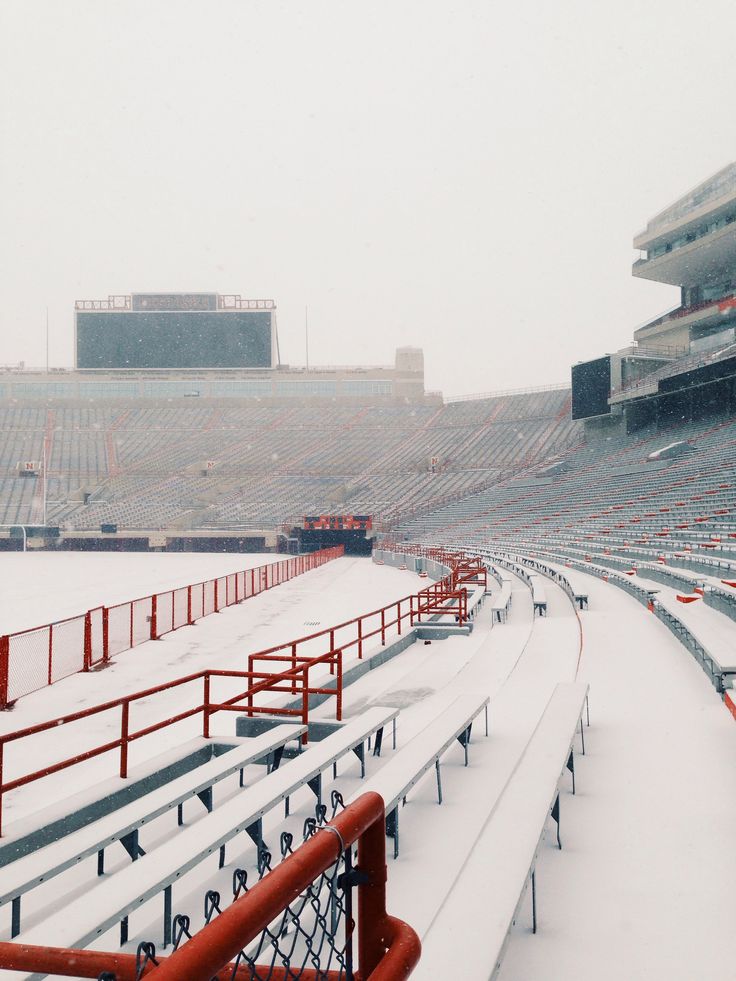
Q: What were some of those ‘good things’ to a then-16, 17 year old kid?
LT: It seemed the focus and the attention was on the football program. Everybody focused on them. And you kind of got that feeling that everybody was there to help you succeed. You got that feeling as a young player, ‘Hey, I can fit here and succeed, and they all want me to succeed.’ And other people who came before me had done a good job, and you want to follow in that line.
Q: Going through that whole experience, would you still say that you had that same feeling your last game?
LT: Yeah, I still say that they did. As a player you might have thought something different and you wanted to play more… and playing time affected your judgment. Especially when you’re young, you’re a little bit hot-headed and you have that athletic blood running through you and you’re kind of wild, but you still understand and realize that they are really there to help you grow and help you succeed.
Q: Kind of like you’re a thoroughbred horse all penned up in the trailer? You’re just dying to get out there and run?
LT: That’s right. Yeah, exactly.

Available on Amazon.com
Q: What stuck out to you from those first days on campus?
LT: I think just the whole environment being something that was structured -which was something I needed, you know what I mean? I needed something like that. That large structure, and the accountability of having to be somewhere everyday, doing something athletic, the whole thing. The whole thing was kind of mind-blowing, mind-boggling, and everything is just going so fast. It’s pretty mind-boggling for a young person 17, 18 years old. The good thing is your naivete kind of helps you, because you didn’t know any better. (laughs) Then once you get older and get out of that lifestyle and you stop playing football and everything you go, ‘Whoa, life’s not all the glitz and glamour that it was.’ A little bit too young to have peaked. (laughs)
Q: Being from California, was there anything about the people of Nebraska that stood out to you?
LT: They were just generally all good people: the kind of people who will open a door for you, feed you, give you a warm bed to sleep on. They’re just good-hearted people in Nebraska. It just helps to have that good feeling, because you meet all the people and you realize how warm-hearted and everything that they are, you pick up on that.
Q: So tell me, who was the first person you befriended on the team?
LT: Oh gee, everybody! My first friends were Jared Tomich and Mike Smith. Those two and me, we got close pretty early. We lived in the dorms together, and you go to practice and you walk home every day, and then you find out you’re walking to the same dorm floor and everything. Then you kind of start hanging out and you have the same interests and you’re going to practice together every day and eating together every day. It just starts like that.
Q: Do you keep in touch with those guys anymore?
LT: Oddly enough, I’ve found most of those guys on Facebook.
Q: I’ll be talking to Coach McBride tomorrow, so I wanted to talk to some of you D-line guys before that to get some dirt on him beforehand…(laughs)
LT: Oh man, I’ll help you! (laughing) The stuff he would do, man? He’d spit chew in our helmets, man!
Q: As punishment or for fun?
LT: Just to do it. Just to do it! (laughs) He’d yell at us, grab us by the facemask, all kinds of stuff, man. It was the best. Good stuff, you know?
Q: The kind of instruction that might get a guy fired nowadays?
LT: Yeah, I don’t think they let you do that stuff nowadays. You’d probably get fired for it, that’s the problem. Maybe.
Q: So Charlie was your position coach. How would you describe him to a stranger?
LT: Like a military drill sergeant-kind of coach, but at the same time he’d love you like a dad loves a son. You always got that feeling, you knew that he cared about you. He’d say the meanest stuff to you. If you were on any kind of high horse you’d get knocked off pretty quick. If you were some hotshot kid coming in? Boy!
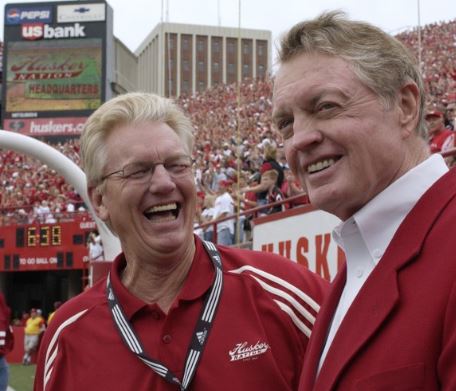
Charlie McBride and Tom Osborne enjoying a game day
Q: Any examples of that for you?
LT: Oh, he’d just yell and curse you out. (laughing) That’s what he would do, yell at you and curse you out. You’d be in your stance and he’d be behind you, and sometimes he would kick you. (laughing)
Q: In the rear end?
LT: Where the sun don’t shine, man! I’ll never forget when he did that to Pesterfield and Connealy, “Get in your stance!” Oh, he’d kick you, man.
He had that stick, this two-by-four with a nail in it. He would get behind you and he would tell you, “Get off the ball!” To get you off the ball he would swing this stick, and if you wouldn’t get off the ball quickly enough, when he swung this stick the nail would get you. I’ll never forget, we’d have the white pants, and some guys, you’d see these white pants and then you‘d see one or two little red dots. Oh man! He would be so funny. And on this stick he had written in red letters, ‘The Motivator.’ He called it ‘The Motivator.’ It was my coach! What am I supposed to do, you know?
Q: So I take it that you had a few holes poked in your rear end?
LT: Oh, I probably got one or two. (laughs) I had to make sure I moved, man! It was called ‘The Motivator.’ I forgot about that…
Q: What else about Charlie? I hear he was a great motivator.
LT: I’ve never met another coach like him in that respect. Afterwards I played in NFL Europe and the NFL for a really short stint, and I played in the XFL and I never, ever had a coach like that, as far as motivation is concerned. He could motivate a whole group of guys, and so much of football is getting all those guys out there to be all on the same page: all of them being real serious and hard-nosed and mean and biting nails and going 120 miles an hour. If you can get all of those guys to be like that, in that same mental state, then you knew you’ve greatly increased your chances of winning just like that.
And he did that every Saturday. Every game he was always there and he would talk to the defense and he would get us pumped up right before we went out. He would say stuff that made the hair on the back of your neck just stand up. You would feel it. You would just really feel it. Then you would go out there in that state of mind and you were definitely ready to do something then.
Q: Any specific speeches stand out to you, or mannerisms of his speeches?
LT: They were extremely animated, and he’s yelling and spitting from the mouth and talking about the other team and his personal experiences. I remember that time, we were in the bowl game and there was that guy, Lee Corso, he said something about us and how we weren’t going to win and we weren’t going to do this and that. And Coach McBride told us that, “Dammit, I whooped his ass back then! We beat the sh&* out of his team. He ain’t sh&*. He doesn’t have the right to talk about you! Show that SOB who we are!” I think we were playing Florida. Man, we killed them. (laughs) The stuff he said got you pumped up. That’s the way he was, man, he would motivate you. And it didn’t matter what it was, just from him being the way he was, it carries over into life and everything else.
Q: How would you equate to it carrying over into the rest of life, Larry?
LT: In life you just reach so many adversities and so many hurdles that you have to go over, no matter what you want to do. It doesn’t matter if you want to get a job doing basket-weaving, get a job selling cars, if you want to write a book, make a movie, whatever, you have your own little hurdles to go over. And the way he was and the way he coached you and pushed you, you don’t see those hurdles. You don’t see those things as adversities anymore, you just go right through them and keep going. He just pushed you and he made you strive for being perfect, for being really, really, precise and perfect at what you do. And if you can attain that in something physical like football then you have a good chance of carrying that over into your real life, the non-physical and mental aspects.
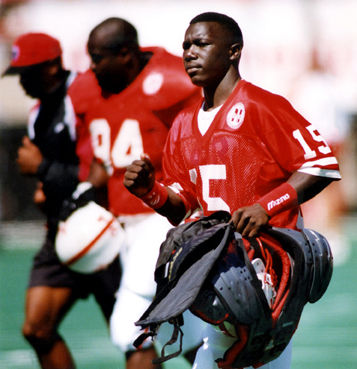
Q: Any other coaches stand out to you from those days as someone special to you?
LT: Coach Osborne. Coach Osborne, I wasn’t always not in his office. (laughs) I had to go to his office a couple of times, but he was always – regardless of what the situation was- he was always a real class act. He was always like a father figure to all of us from some standpoint. It was like a big family and he was the dad. It was just kind of like that. And all of the other coaches were your uncles so you did what they said, but T.O. was like the dad. When he talked to you, because he wasn’t very animated or anything like that, when he talked to you it was really special. To have him take time out and talk to you and see how you were doing -and he’d do that for everybody, every kid- it was so amazing to me.
I remember when I’d been there for a few years and I looked over and he was talking to this brand new freshman, a walk-on kicker, a kid who never had a scholarship, a kid who was probably never going to get a scholarship. And he was talking to the kid. He knew the kid’s mom and he knew the kid’s dad, he knew them by name, “How is your mom, Carol? And how is your dad…” And I was like, ‘Wow!’ I realized, “You’ll never have another head coach like that, who cares that much about the kids and what he’s doing.”
Q: It’s one thing saying that you care and it’s another thing to actually prove it?
LT: And he walked it every day. When you have a role model in front of you like that every day it makes it easier to do what you have to do.
Q: Did he have an effect on your faith, Larry?
LT: I think he had an effect on a lot of guys there, not necessarily myself, because I had kind of studied and done a lot of religion before I got to college and was always somewhat religious, but I wasn’t always, so there were times I’ve been more and other times not as religious. But I think that no matter what, he implemented it into our program. So regardless, you ‘got it.’ You know what I mean?
Q: Whether it was overt or subliminal, his Christian faith was always there on display?
LT: Yeah, and that was good, because you needed that. You needed that as a young man doing what you were doing and having to go through things you were going to go through. You need those things.
Q: Larry, you were part of some great, great teams. What do you think set those teams apart for others of their time?
LT: I always say -even when I played professionally- my hardest games were the Nebraska scrimmages; they were the hardest games I ever played in. The Saturday scrimmages we would have sometimes -and you played against your own linemen, your own guys- you felt beat up. You felt like you got your butt kicked. (laughs) We all felt like that, both ways. I think it was just the amount of good athletes that we had, who were all so dedicated to being the best. The subconscious effect that it had on the whole group of guys -when I first got there in ‘92 we were 9-2, or 9-3- and it kind of just shifted a little bit because I think after that we all said, “You know what, we can actually win the national championship. We can do it.” It got to the point where the whole consciousness of everybody was just different.
I’ve been on different teams and I’ve never been on a team where the whole consciousness was that way. It was just like: you were excellent, you were good, and you didn’t lose. And there really wasn’t anyone around who could beat you. You didn’t even think, ‘Oh, this other team could beat us.’ You never even thought it, you know what I mean? It never even factored into your brain that another team would beat you or would outplay you, because we had such good work ethic. We all worked so hard and we all believed that if we worked harder than everybody else, which we did, then there was no reason why we shouldn’t beat everybody else. I think we just knew by our hard work and dedication and what we were doing, it just made something kind of special, it made us a little unique. A lot of guys on that team were just strong, great athletes.
Q: Who stands out to you the most?
LT: Well, gosh, all the offensive linemen during those times were really, really, really good athletes and good players. All of them were really strong. Brenden Stai, he was really strong and really good. Zach Wiegert, gosh, he was not as strong with the weights, but on the field just a tremendous athlete. But like Brenden, he was just really, really strong, really fast and really good. Brenden was just probably one of the better guys I ever played against.
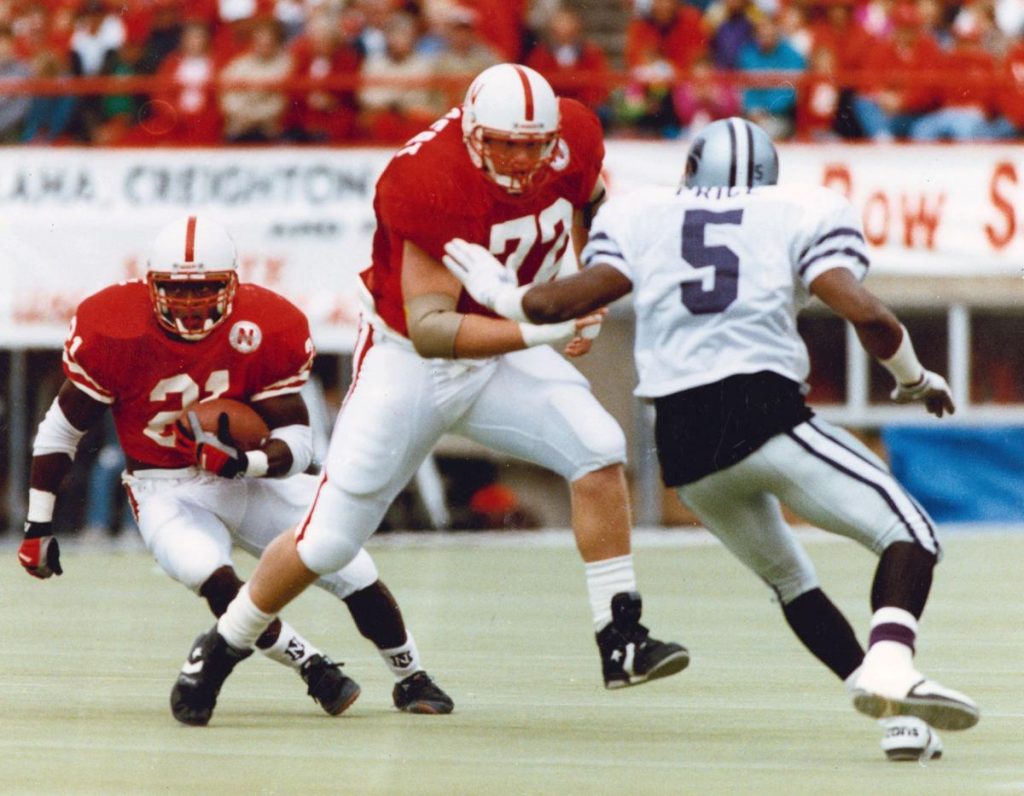
Q: One of those guys who kept beating you up on the Saturday scrimmages?
LT: Yeah, and I had to work a little harder to give it a little extra to get serious. You can’t mess around, you had to get serious.
Q: Knowing what you know and going against guys like Zach and Brenden, put yourself in Warren Sapp’s shoes playing for Miami. What would you say he experienced in that ’94 season’s title game?
LT: I remember that experience, going up to Brenden and saying, ‘How is he?’ Brenden said, “Dude, he’s the best player I’ve ever played against.” He said that straight up about Warren Sapp, “He’s phenomenal. The best player I’ve ever played against.“ I knew right then that Warren Sapp was the real deal. That was during the game. They had just came off of one series and I remember asking Brenden.
Q: Brenden wasn’t one to readily toss around compliments…
LT: No, not at all. So that meant something. I don’t think I ever heard him say something like that about anybody. The first time I ever heard that…
To be continued….
Copyright @ 2013 Thermopylae Press. All Rights Reserved.
Photo Credits : Unknown Original Sources/Updates Welcomed
Author assumes no responsibility for interviewee errors or misstatements of fact.